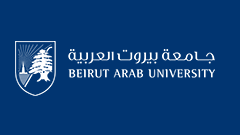Article Title
TRAUMA AND REHABILITATION IN A PARADOXICAL SOCIAL AND CULTURAL CONTEXT, IN THE AFRICAN EQUATION BY YASMINA KHADRA
French Title
TRAUMATISMES ET RÉHABILITATION EN CONTEXTE SOCIAL ET CULTUREL PARADOXAL, DANS L’ÉQUATION AFRICAINE DE YASMINA KHADRA
Author ORCID Identifier
Badia Mazboudi - https://orcid.org/0009-0006-7071-1475
Abstract
In the journey described by Yasmina Khadra in The African equation, the author raises the question of the difficult rehabilitation of two ethnically different groups: on one hand, the main characters of the novel, Westerners (German and French) taken hostage off the coast of Sudan by African mercenaries, and on the other hand, the African populations savagely relocated from their lands to makeshift camps. Faced with this emotional shock and this traumatic act, the reactions of the two groups are not the same: post-traumatic depression, social isolation, pain, whereas the Africans, destitute and wandering from one place to another, seem to privilege more the sharing of misfortunes, the values of exchanges and contacts, forms of sublimation of the trauma. The main character, Kurt Krausmann, a German doctor and hostage, becomes aware of this discrepancy between the two cultures: the narrative scheme of the novel makes him a problematic character who questions the values of his own culture concerning rehabilitation. What are the traumatic and post-traumatic symptoms due to the disaster that the different characters experience and what kind of resilience do they advocate in order to bear the unbearable? What are the values of the two cultures that aim at repairing the traumatic break-in and that divide the two groups? Finally, does the disappearance of the founding values of a culture give rise to depressive emergences, are the problematic questions of this article.
French Abstract
Yasmina Khadra a toujours été dans ses romans proche de l’actualité et de ses tragédies, surtout celles qui ont pour contexte Orient-Occident. Dans le périple qu’il décrit dans L’équation africaine, (2011) il pose la question de la difficile réhabilitation que doivent mener deux groupes ethniquement différents : d’une part les personnages principaux du roman, occidentaux (Allemands et Français) pris en otage au large de la Somalie, par des mercenaires africains, et de l’autre les populations africaines délocalisées sauvagement de leurs terres vers des camps de fortune. Dans une approche psycho-sociocritique, nous nous poserons la question de savoir quels sont les symptômes traumatiques et post-traumatiques que vivent ces deux groupes sociaux et quels types de résilience ils prônent pour supporter l’insupportable. Il est certain que les deux groupes ne sont pas à pied d’égalité devant les droits et les privilèges, leurs modes de vie étant complètement différents. La réhabilitation de chacun des deux camps ne se fait pas non plus sur la même base. Des divergences culturelles sont repérables entre eux. Quelles sont les valeurs des deux cultures qui visent la réparation de l’effraction traumatique et qui les divisent ? Et quels paradoxes ?
Keywords
resilience, post-traumatic depression, values, exchanges, culture
French Keywords
résilience, dépression post-traumatique, valeurs, échanges, culture.
Recommended Citation
Mazboudi, Badia
(2023)
"TRAUMA AND REHABILITATION IN A PARADOXICAL SOCIAL AND CULTURAL CONTEXT, IN THE AFRICAN EQUATION BY YASMINA KHADRA,"
BAU Journal - Society, Culture and Human Behavior: Vol. 5:
Iss.
1, Article 3.
DOI: https://doi.org/10.54729/2789-8296.1152

